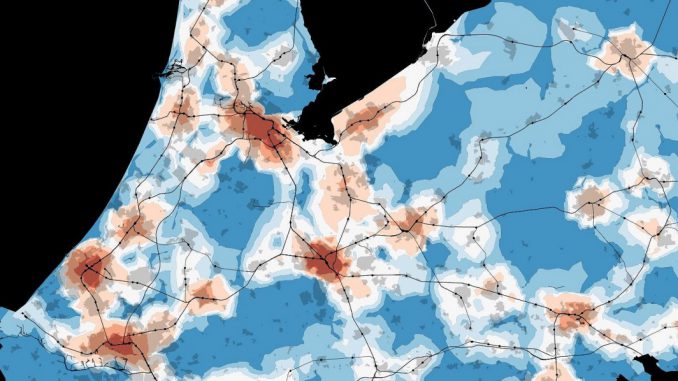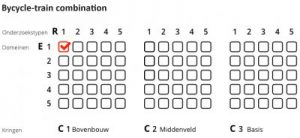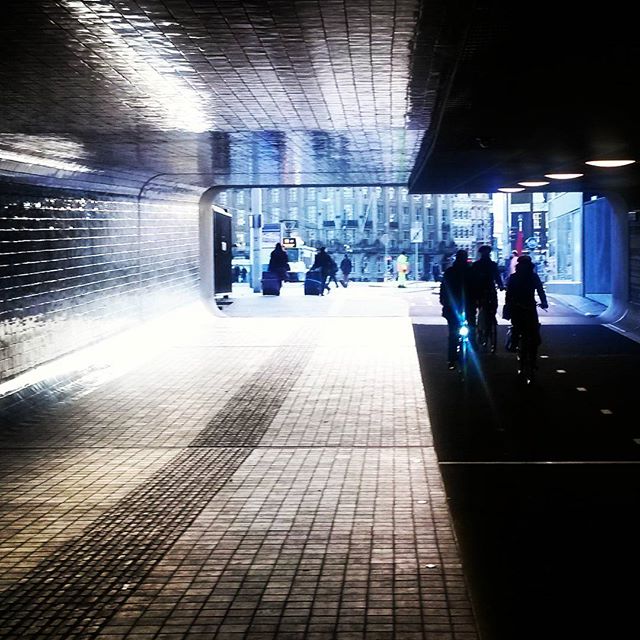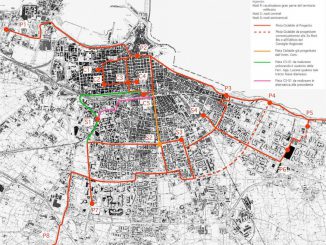
Projectnaam
Bicycle–train combination
Projecteigenaar
UvA (Luca Bertolini), NWO, Min. IenM, Platform31
Projectomgeving
UvA, Fietsersbond, CROW
Projectonderzoeker of -uitvoerder
Roland Kager (in co-operation with UvA)
Trekker Fietscommunity
Rob van der Bijl (RVDB Urban Planning & GoDutchCycling)
Tweede contact
Dutch Rail Sector
Trigger
The role of the bicycle as an egress and access mode for multimodal nodes. An exploration of the synergy of bicycles and public transport, leading up to a scientific research agenda. The bicycle–train combination provide for strong synergy when combined in a single trip chain. This synergy generates an integrated transport system that is both fast (because of the train) and flexible (because of the bicycle).
Domeinen / Domains
(E1) Effective mobility / Effective mobility
Kringen / Circles
(C1) Bovenbouw / Superstructure
Onderzoekstypen / Types of research
(R1) Wetenschappelijk / Scientific
Samenvatting / Summary
The main scientific result is the notion that combined usage of bike and transit – for many applications – need be treated a distinct transport system rather than the simple juxtaposition of two separate systems. This is considered a major new insight, actually surpassing initial expectations, bearing implications for research and practice alike, and of direct relevance for any of the stated research questions. Furthermore, instead of just focusing on individual components (e.g. bike parking facilities at stations), we have provided much broader insights into the role of the bike for transit systems (and vice versa).
Uw tags / Your tags
Station catchment areas, public transport, cycling, transport system analysis, urban transport
Beschrijving / Description
Doel en opzet / Aim and plan
In the Netherlands, the share of cycling used in combination with other modes has increased significantly in recent years. The joint use of train and bicycle has increased in particular. The bicycle is traditionally mainly used as an access mode and mainly in conjunction with trains. Often, it is stated that the bike extends the catchment-area of public transport or multi-modal nodes, but its counterpart is true as well; multi-modal travel improves the business case for the bicycle. Aim of this study is to extend theoretical background on these trends. The main scientific results are the answers to the three research questions. This will contribute to the existing knowledge by (1) extending the conceptual framework in which to analyse the use of the bike as an access and egress mode and assess its growth potential and (2) incorporate the effect of recent trends in the explanation of the actual and potential patterns of use.
Organisatie en financiering / Organization and funding
NWO
Periode en beschikbaarstelling / Organization and funding
November 2013 – September 2014
Werkpakketten / Workpackages
Research Question 1: How can bicycle access and bicycle egress trips be interpreted as part of a larger integrated land-use/transport system? In which fundamental ways does the use of bicycles in access and egress trips change the functioning of a (system of) multi-modal nodes?
Research Question 2: What is the independent effect of bicycle parking facilities in the functioning of these land-use/transport systems? And how can the framework identified in research question 1 be extended by adding bicycle parking facilities as a third dimension?
Research Question 3: How can decisions to use the bicycle for access or egress trips be framed in a conceptual model using a system dynamics methodology? Which diversity of aspects, conditions and possibilities seem relevant for different trip, location or population segments?
Toepassingen / Applications
Dedicated articles on bike-train usage based on the research findings have been published in major professional journals such as OV-Magazine, Verkeerskunde and Verkeer in Beeld, whereas contributions have been made to broader articles published in Rooilijn and Binnenlands Bestuur but also for articles in newspapers (Trouw, Parool) and social media (we started a successful twitter account @fietsprofessor and @biketrainguru). For a full overview, please contact researchers. Part of the above contributions has appeared online as well, retrievable by googling on terms like ‘trein fiets kager’.
In addition to the research output we delivered valued contributions to professional congresses (e.g. Railforum June 5, 2014, VerDuS congress June 17/18 2014); in-house discussion on case studies (e.g. municipality of Amsterdam, urban region of Arnhem-Nijmegen and region of Amsterdam); introductions to the theme and its research for many dozens of professional contacts, working at government bodies, consultancy agencies, transit companies, interest groups, research colleagues, students and journalists; prolonged contacts with the 15 professionals invited for the two group model building sessions organised during the project and the 80 members of the Community of Research and Practice.
Overige / Other
None.
Achtergronden / Backgrounds
Aanvullingen / Additions
None.
Publicaties en referenties / Publications and references
Kager, L. Bertolini, M. Te Brömmelstroet , Characterisation of and reflections on the synergy of bicycles and public transport. Transportation Research Part A – 85 (2016) 208–219
http://www.sciencedirect.com/science/article/pii/S0965856416000240
Betrokken maatschappelijke partijen / Involved social stakeholders
ProRail, NS
Gerelateerde projecten / Related projects
Kim-Essay ‘Toekomstbeelden van het fietsgebruik in vijf essays’
Gerelateerde toepassingen / Related applications
P.M. (mogelijk bijvoorbeeld: potentiele opschaling OV-fiets)
Vervolgonderzoek / Follow-up research
Kim-onderzoeksproject Fiets-Treingebruik (data-verzameling)
Links
Online deliverables (English)
– http://www.sciencedirect.com/science/article/pii/S0965856416000240
– http://www.nationaalfietscongres.nl/cycling-cities/pdf/10.-Roland-Kager.pdf
– http://www.dialoog.verdus.nl/upload/documents/Pres_Roland_Kager.pdf
– http://www.dialoog.verdus.nl/upload/documents/Pres_Kager_Dag_2.pdf
Online deliverables (Dutch)
– https://www.shapingsociety.nl/file/1468408690.5568QETHUW/14062016-presentatie-ui–compressed-.pdf (slide 62-98)
– http://www.fietsberaad.nl/?repository=fietsberaadpublicatie+26 (Chapter 3)
– http://www.acquirepublishing.nl/verkeer-in-beeld/stem-trein-af-op-de-fiets
– http://www.railforum.nl/wp-content/uploads/2014/06/Presentatie-Fiets-en-trein-Roland-Kager.pdf
– http://www.verdus.nl/upload/documents/Roland%20Kager%20Fiets%20in%20voor-%20en%20natransport.pdf
Andere media / Other media
Twitter account Roland Kager: https://www.twitter.com/biketrainguru
Tekst- en beeldrechten / Text and image credits
Roland Kager et al.
Contactgegevens / Contact data
https://www.linkedin.com/in/rolandkager/
https://www.studiobereikbaar.nl/team/ – Roland Kager








You must be logged in to post a comment.